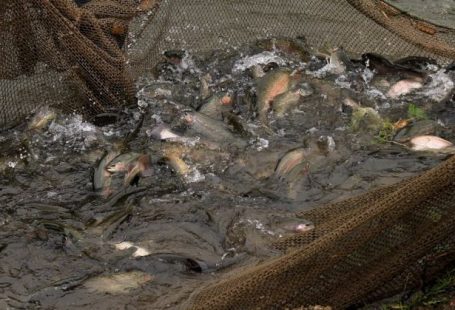Pet owners often find themselves bombarded with conflicting information about what to feed their furry companions. With so many myths circulating about pet food, it can be challenging to separate fact from fiction. In this article, we will debunk some of the most common pet food myths to help you make informed decisions about your pet’s diet.
—
**Grain-Free Diets are Always Better**
One prevalent myth in the pet food industry is that grain-free diets are always superior to those containing grains. While grain-free diets can be beneficial for some pets with specific dietary needs, such as allergies or sensitivities to grains, they are not inherently better for all pets. In fact, grains can provide essential nutrients and fiber that contribute to a well-balanced diet for many animals. It is essential to consult with your veterinarian to determine the best diet for your pet based on their individual needs.
—
**Raw Diets are the Healthiest Option**
Another common myth is that raw diets are the healthiest option for pets. While proponents of raw diets argue that they mimic what animals would eat in the wild, there are significant risks associated with feeding raw food to pets. Raw diets can be contaminated with harmful bacteria such as Salmonella and E. coli, which can pose serious health risks to both pets and their owners. Additionally, raw diets may not provide all the necessary nutrients that pets need for optimal health. It is crucial to weigh the potential benefits and risks of raw diets carefully before deciding if it is the right choice for your pet.
—
**Cats Should Only Eat Fish**
Many cat owners believe that fish should be a staple in their feline’s diet. While fish can be a good source of protein and omega-3 fatty acids, feeding cats a diet exclusively or predominantly made up of fish can lead to nutritional imbalances. Fish alone may not provide all the essential nutrients that cats need, such as taurine, which is crucial for feline health. It is essential to offer a variety of proteins in your cat’s diet to ensure they receive all the necessary nutrients for optimal health.
—
**Commercial Pet Foods are Unhealthy**
Some pet owners believe that commercial pet foods are unhealthy and filled with low-quality ingredients. While it is true that not all commercial pet foods are created equal, many reputable pet food companies adhere to strict quality control standards to ensure that their products are nutritionally balanced and safe for pets. When choosing a commercial pet food, look for products that have undergone feeding trials and meet the nutritional requirements set by organizations like the Association of American Feed Control Officials (AAFCO).
—
**Homemade Diets are Always Better**
Homemade diets have gained popularity among pet owners looking to provide their furry friends with a more natural diet. While homemade diets can be a great option for some pets, they also come with potential risks. It can be challenging to formulate a homemade diet that provides all the necessary nutrients in the right proportions for optimal health. Without proper guidance from a veterinary nutritionist, homemade diets may lead to nutrient deficiencies or excesses that can harm your pet’s health. If you are considering feeding your pet a homemade diet, consult with a veterinarian to ensure that it is balanced and meets your pet’s nutritional needs.
—
**Conclusion: Making Informed Decisions About Your Pet’s Diet**
Navigating the world of pet food can be overwhelming, especially with so many myths and misconceptions circulating. By debunking common pet food myths and consulting with your veterinarian, you can make informed decisions about your pet’s diet. Remember that every pet is unique, and their dietary needs may vary based on factors such as age, breed, and health conditions. Prioritize your pet’s health by choosing a diet that is nutritionally balanced and tailored to their individual needs. Your furry companion will thank you for providing them with a diet that supports their overall well-being.





